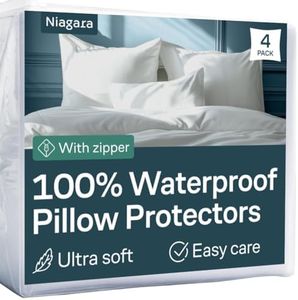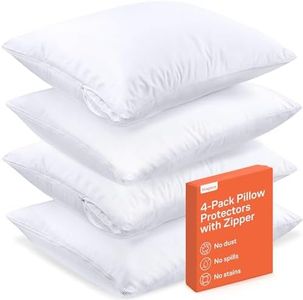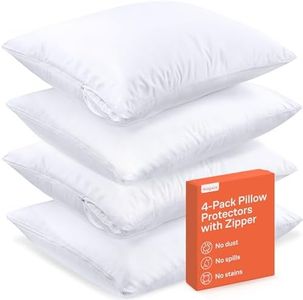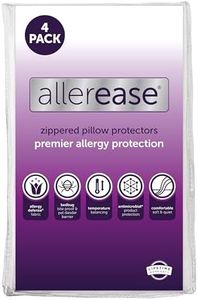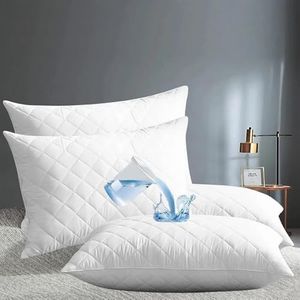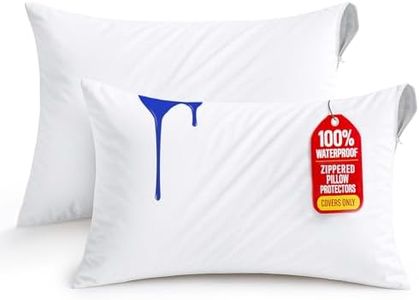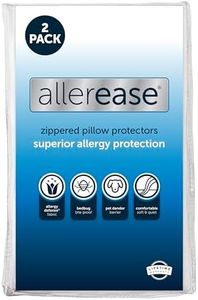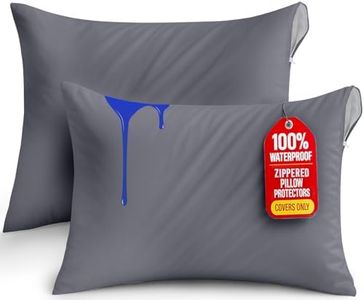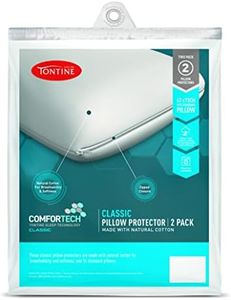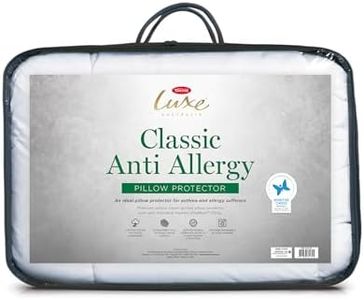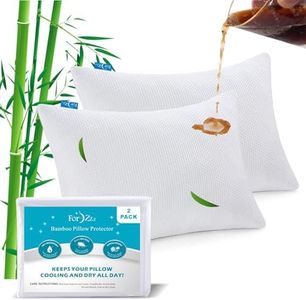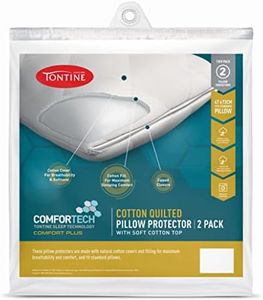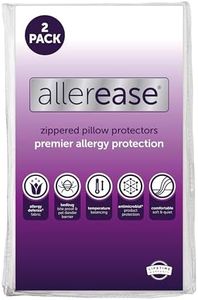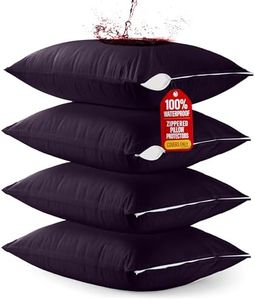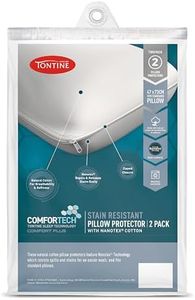We Use CookiesWe use cookies to enhance the security, performance,
functionality and for analytical and promotional activities. By continuing to browse this site you
are agreeing to our privacy policy
10 Best Pillow Protectors
From leading brands and best sellers available on the web.By clicking on a link to a third party's website, log data is shared with that third party.
Buying Guide for the Best Pillow Protectors
Choosing the right pillow protector can make a big difference in the comfort and longevity of your pillows. A good pillow protector not only shields your pillow from spills, stains, and dust, but also helps with hygiene and can even provide added features like allergy protection. When selecting a pillow protector, consider what matters most to you—whether it's softness, waterproofing, breathability, or protection from allergens. Understanding the key features can help you make an informed decision and ensure your pillow remains fresh and comfortable over time.MaterialThe material of a pillow protector determines how it feels, how well it protects the pillow, and how easy it is to care for. Common materials include cotton, polyester, and blends, while some also incorporate waterproof layers like polyurethane. Cotton is soft and breathable, suitable for those who prioritize comfort and a natural feel. Polyester and blends are often more durable and can be more economical. For those with sensitive skin or allergies, hypoallergenic or organic materials may be best. Think about your main need—do you want softness, easy maintenance, or enhanced protection?—and match the material accordingly.
WaterproofingWaterproof pillow protectors have a special layer that prevents liquids from seeping through to your pillow. This is particularly important if you have children, pets, or tend to sweat at night. Some protectors have a thin, almost unnoticeable waterproof layer that still allows for breathability, while others feel thicker and can be less comfortable. If you just need basic protection from occasional spills, a lightweight waterproof layer is probably enough. For households prone to frequent accidents, a heavier-duty option may be necessary.
Allergen ProtectionAllergen-proof pillow protectors are designed to block dust mites, pet dander, and other allergens from passing through the fabric, helping those with allergies or asthma sleep better. Some pillow protectors are marketed as anti-allergy or hypoallergenic, and these are typically tightly woven or have special barriers. If you don’t have allergies, you can focus on other features, but for anyone who wants to reduce allergic reactions at night, this is a must-have, and the protector’s label will usually highlight these properties.
BreathabilityBreathability refers to how well air can pass through the pillow protector, affecting how cool or warm your pillow feels. Breathable protectors allow heat and moisture to escape, making for a more comfortable sleep, especially if you tend to feel hot at night. Look for protectors that mention airflow, moisture-wicking, or temperature regulation if you want to stay cool. If heat is not a concern, this may be less important, but it can still impact overall comfort.
Closure TypeThe closure is how the protector stays on your pillow—options include zippers, envelope-style flaps, or basic overlaps. Zippered closures offer the most complete protection because they enclose the pillow fully, keeping out dust mites and stains. Envelope flaps are easier to use and remove for washing, but they may not be as secure. If you want maximum protection, go for a zippered closure; for everyday convenience, an envelope style might be better.
Ease of CleaningSome pillow protectors are machine washable and can handle high temperatures, which makes routine cleaning simple and helps kill germs and allergens. Others may require more gentle washing or air drying. If you want something you can toss in the laundry without special care, check the cleaning instructions before you buy. People with allergies, children, or pets should look for protectors that can withstand frequent washing.
Size and FitPillow protectors come in standard sizes like standard, queen, and king, just like pillows themselves. A good fit means the protector won’t bunch up or slide off, ensuring complete coverage. Always check your pillow’s size before buying a protector. Some protectors are also a bit stretchy for a snug fit, which can add comfort.
